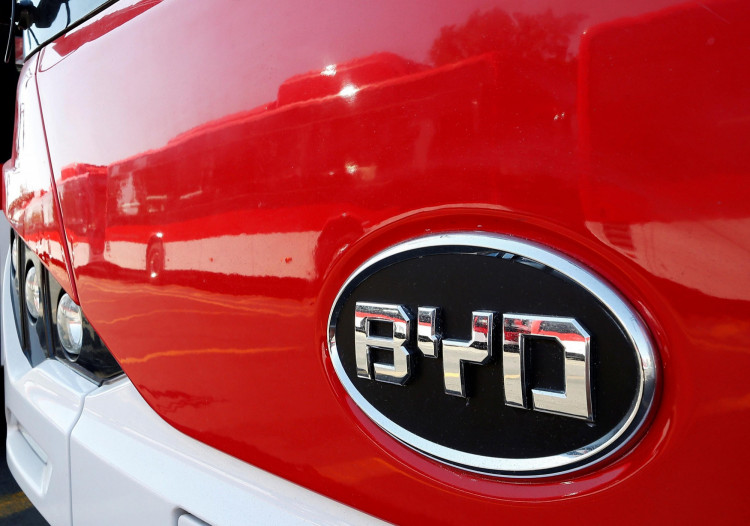Chinese electric vehicle (EV) giant BYD has revealed an innovative driver-assist technology designed to provide a smoother driving experience and give the company a competitive advantage in the EV market.
Supported by Warren Buffett's Berkshire Hathaway, BYD announced on Monday the development of a new technology system for stabilizing car rides on rugged terrain, sharp turns, and even shallow water. The shock absorption technology will be a key feature of the company's recently launched premium brand, Yangwang.
"Traditionally, luxury cars were determined by brand and history. For luxury new energy vehicles, it's a matter of what tech and products," BYD founder Wang Chuanfu said in Mandarin at the launch event on Monday, according to a CNBC translation. He asserted that the technology represented a "breakthrough" that "leads and surpasses foreign technological level."
This announcement comes just before the Shanghai Auto Show, scheduled to begin next week, where numerous Chinese automakers plan to unveil new products and models.
Part of the new technology system employs the same "lidar" sensors used in assisted driving, according to BYD. Lidar, short for "light detection and ranging," utilizes lasers to generate detailed maps of the surrounding environment.
In a press release, the automaker stated that its new "DiSus" system "provides a foundation for the future development of Advanced Driver Assistance Systems (ADAS)."
BYD has adopted a relatively cautious approach to self-driving technology. During a late March investor call, the company's management highlighted that autonomous driving still faces the challenge of determining liability in the event of an accident. Nevertheless, management acknowledged that advanced assisted driving technology has the potential to enhance overall safety, as per a filing of last month's call accessed through the Wind Information database.
The automotive industry has been working to strike a balance between ambitious driver-assist options and cautious safety protocols. EV market leader Tesla recalled more than 360,000 cars in February over assisted-driving software for city streets, which it said could cause accidents. That urban assisted driving software is not available for Tesla drivers in China.






